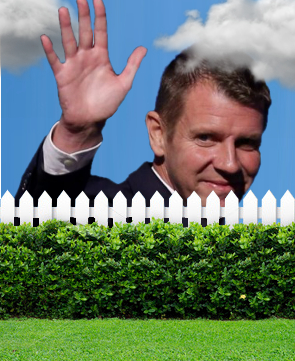Baird backs out amid LPI sale
 NSW Premier Mike Baird is retiring from politics.
NSW Premier Mike Baird is retiring from politics.
Mr Baird issued a statement on Twitter that he is ready to move on from politics after 10 years in public life.
“As I have reflected on the approaching halfway mark of our current term of government, and the opportunity it presents to refresh the Cabinet team, I have decided that this is the perfect time for me to hand the reins over to a new Premier,” it read.
“Serving as Premier of NSW has been a tremendous honour, but I have made clear from the beginning that I was in politics to make a difference, and then move on.
“After 10 years in public life, this moment for me has arrived.”
Mr Baird makes his exit amid mounting criticism of his plans to privatise the state’s land titles registry.
Land and Property Information's (LPI) registry is relied upon by government agencies like the Police Force and ICAC for information that is central to their inquiries and operations.
If it is sold, opponents say the fees will increase even more than they already have after going up earlier this year.
Shadow Finance Minister Clayton Barr says that based on the LPI’s own fee increases earlier this year, “there will be an increase from $30,000 to more than $130,000, just for LPI searches so the police can go about their job of catching criminals”.
“Information about title registrations allow the ICAC to investigate the crimes of people such as Eddie Obeid by pursuing them through their property ownership and investments,” he said.
Historians and journalists have added their voices to the growing opposition, with the Royal Australian Historical Society and the Media Entertainment and Arts Alliance (MEAA) saying they believe selling the LPI will make their jobs prohibitively expensive.
“Our fear is if these records are removed from the custody of the bureaucrats who understand them and have been their guardians for centuries, the records would no longer be kept as a complete chain of verifiable information,” Carol Liston, president of the Royal Australian Historical Society and an associate professor of history at University of Western Sydney, told Fairfax.
The journalists’ union says it would harm press freedom.
“In the interests of accountability and transparency, information such as that contained in the land titles registry is best kept in public hands and easily accessible to both the media and the general public,” an MEAA spokesperson told reporters.
“The risks are always that private operators who are seeking to maximise their investment will introduce new or higher fees.”







 Print
Print